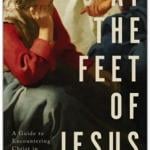OK, so it’s old, but Geoffrey O’Brien’s NYRB review of Malick’s The Tree Of Life is one of the best things I’ve come across. A few highlights. “An aroma of Freudian family romance pervades the film like a cloud of slightly acrid perfume, and Malick (who has written a screenplay on the case that formed the basis of Breuer and Freud’s Studies on Hysteria ) surrounds early sense impressions with silences and gaps suggestive of Freud’s ‘screen memory’ that conceals... Read more



















